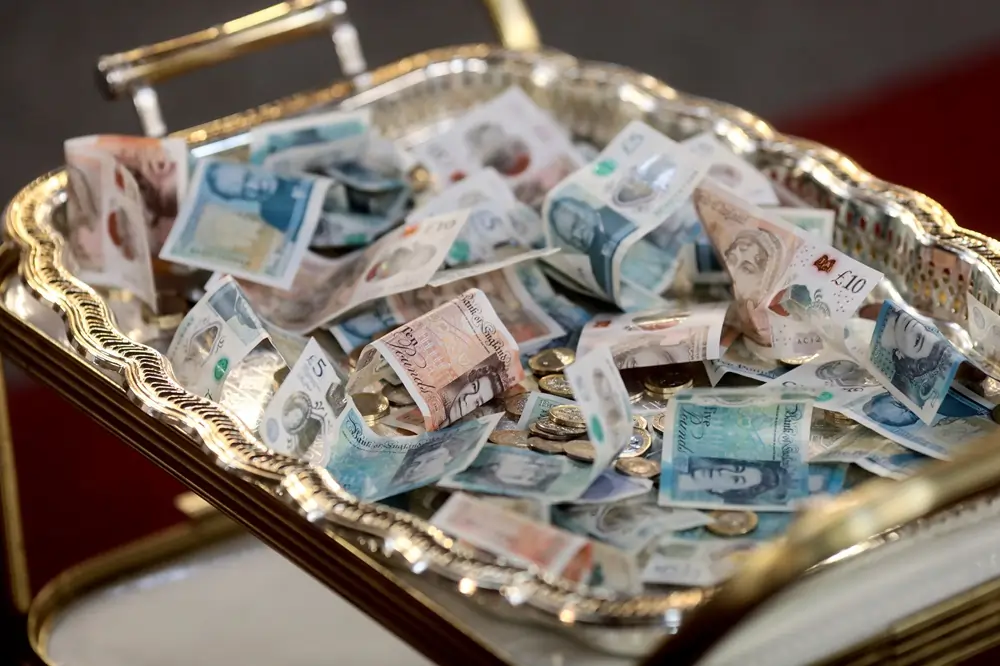
Sterling dented by one-two punch from dollar and euro
LONDON (Reuters) – The pound neared its lowest in almost two months against a robust dollar on Tuesday, as the U.S. currency got a lift from a pop higher in Treasury yields, while the euro extended its modest rally over the last week.
Investors in U.S. assets are contemplating the prospects of a second Donald Trump presidency, after President Joe Biden’s faltering debate performance last week and Monday’s Supreme Court ruling that the former president has broad immunity from prosecution over attempts to overturn his 2020 election loss, said Chris Weston, head of research at Pepperstone.
With the dollar broadly in the ascendant, sterling traded around 0.25% down on the day at $1.2618, skimming last week’s low at $1.2616, its weakest since May 15. Against the euro meanwhile, the pound held steady at 84.935 pence, but is hovering around its lowest since early June.
European Central Bank President Christine Lagarde on Monday said the central bank was in no rush to cut interest rates, which gave the euro a boost against the pound the day before, but did little to lift the single European currency on Tuesday.
“Funnily enough, the biggest casualty of Lagarde’s comments and the French election has been the pound, whose decline in value against the euro has sent the overall pound index to its lowest level for five weeks,” Caxton strategist David Stritch said.
A first round of voting in French elections at the weekend resulted in the far-right National Rally (RN) taking the largest share of the vote, but less than many had initially anticipated, which has supported the euro.
Markets are currently pricing in the prospect of at least one more ECB rate cut this year, but the chance of a second have faded slightly.
Meanwhile, Britain heads to the polls on Thursday. The opposition Labour party is widely expected to win, ending 14 years of Conservative government. The UK’s tight finances mean any new government will have little room to up spending, potentially removing a catalyst of sterling weakness and keeping volatility contained.
(Reporting by Amanda Cooper; Editing by Anil D’Silva)


